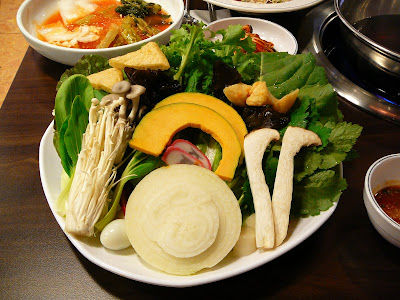Sea Border Hot Issue at Koreas SummitBy JAE-SOON CHANG The Associated Press Wednesday, August 29, 2007; 5:25 AM
SEOUL, South Korea -- Half a dozen South Korean sailors died in a gunbattle with North Korea five years ago defending what Seoul's top minister on relations with Pyongyang now suggests could be changed: the sea border between the Koreas.
Unification Minister Lee Jae-joung's suggestion earlier this month left the country badly divided ahead of a rare summit with the North _ stoking conservatives' anger that is already simmering over allegations that simply holding the meeting itself is yet another capitulation to North Korean leader Kim Jong Il by the liberal government.
At issue is how to view the disputed western sea border and how to react if Kim raises it at his October talks with President Roh Moo-hyun in Pyongyang, as many analysts predict.
The two Koreas have yet to agree on their sea border more than 50 years after the end of their 1950-53 war. Instead, they rely on a line that the then-commander of U.N. forces, which fought for the South, drew unilaterally at the end of the conflict.
Conservatives in South Korea have long considered the Northern Limit Line, or NLL, an unquestionable sea border. But liberals have increasingly viewed it as a major source of military tension on the divided peninsula, and an obstacle impeding true reconciliation with Pyongyang.
The division came to the fore when Lee said earlier this month that he believed the sea border was not formally set, and that the nation should "reflect on" a 2002 naval skirmish with the North in terms of how best to maintain security.
His point was that the NLL's main purpose is to prevent maritime clashes and, therefore, if the line itself is a source of tension, the country should reconsider how it is demarcated _ an argument unacceptable to conservatives who view the NLL as something to be defended at any cost.
Further enraging them was Lee's choice of a Korean word to mean "reflect." The word, "banseong," could also mean "repentance," which gave the impression that Lee suggested South Korea was wrong to defend the border in the 2002 clash that left six South Korean soldiers dead and 18 others wounded.
"Our young heroes, who died glorious deaths while trying to safeguard the NLL, would be weeping in heaven," said Na Kyung-won, spokeswoman of the opposition Grand National Party.
Among those shocked was even South Korea's defense chief.
"I can't understand it either," Defense Minister Kim Jang-soo was widely reported in local media as saying in response to Lee's comments. Kim's ministry refused to confirm the remark, out of apparent concern it may publicize the row with the Unification Ministry.
It has been considered a near taboo in South Korea even to suggest having talks with the North on the sea border issue.
However, Lee and other ministry officials have openly called for flexibility on the issue recently, prompting suspicions in the media that the government is trying to soften an expected backlash it would draw from the public if it discusses the matter at the summit.
The president's office has given no clear-cut answer on whether the issue would be discussed at the summit, only saying: "The NLL is a de-facto maritime borderline that we have defended for the past 50 years."
The country's main opposition party, mass-circulation newspapers and other conservatives demand the government promise not to put the matter on the summit agenda.
The two Koreas agreed in a 1992 pact to continue talks to demarcate the sea border while respecting the NLL until a new border is set.
South Korea has rebuffed the North's demand for sea border talks so far, saying it can discuss the issue only after the two sides take substantial military confidence-building measures.
Liberal analysts say Seoul cannot leave the issue unresolved any longer if it wants to pursue further reconciliation with Pyongyang.
"This issue has become a key to overall South-North relations," said Kim Geun-shik, a North Korea expert at South Korea's Kyungnam University. "We need to at least discuss it with North Korea to find a compromise."
Conservatives argue the South Korea must remain firm.
"Why don't we then pull back the land border by about 100 kilometers? That would make North Korea very pleased," one military official quipped, speaking on condition of anonymity citing the issue's sensitivity.
 SeungWoo and Steve.
SeungWoo and Steve. Sort of fancy grungy (and with a Christmas tree still set up beside the stairs).
Sort of fancy grungy (and with a Christmas tree still set up beside the stairs). I had a peach crush and she had a jun bug. Our second round of drinks weren't so great. We ordered Daquiris, but got the martini form of it, which was VERY bitter and not very nice. They were nice enough to let us get something else instead (another jun bug for her and a black russian for me). The little kwaja (snack) that they provided was a mix of coffee peanuts and banana chips. addictive.
I had a peach crush and she had a jun bug. Our second round of drinks weren't so great. We ordered Daquiris, but got the martini form of it, which was VERY bitter and not very nice. They were nice enough to let us get something else instead (another jun bug for her and a black russian for me). The little kwaja (snack) that they provided was a mix of coffee peanuts and banana chips. addictive. YongKyu's suit is so big on him. SOOOOOOOOOOOO adorable!!!
YongKyu's suit is so big on him. SOOOOOOOOOOOO adorable!!! They actually have quite a variety of things on their menu, including smoothies, cakes, sandwiches, spaghetti, ice-cream and shaved ice dessert dishes.
They actually have quite a variety of things on their menu, including smoothies, cakes, sandwiches, spaghetti, ice-cream and shaved ice dessert dishes.  I had the raspberry smoothy again and Revo had banana juice. We also shared a chocolate tiramisu - yummy!!! Of course, we also got the free toast and whipped cream. :)
I had the raspberry smoothy again and Revo had banana juice. We also shared a chocolate tiramisu - yummy!!! Of course, we also got the free toast and whipped cream. :) The window says, "CanMore is... Good for your health and Canmore makes you beautiful." Notice the big dragonfly on the h of 'health':
The window says, "CanMore is... Good for your health and Canmore makes you beautiful." Notice the big dragonfly on the h of 'health': It was flitting around outside and kept hovering right in front of us before landing on the window. Must have seen all of the great food. ;)
It was flitting around outside and kept hovering right in front of us before landing on the window. Must have seen all of the great food. ;)
 Each table had a bit of privacy of some sort. We chose one of the more open tables at a window (but still in a corner).
Each table had a bit of privacy of some sort. We chose one of the more open tables at a window (but still in a corner). Wrapped sugar cubes are in the little jewelry box just behind/beside the lamp.
Wrapped sugar cubes are in the little jewelry box just behind/beside the lamp. The entry is to the left in this picture. A couple of little girls kept coming up to the table with camera phones to take pictures of all of the pretty things.
The entry is to the left in this picture. A couple of little girls kept coming up to the table with camera phones to take pictures of all of the pretty things.  I had an iced mocha and Sergeja had an iced coffee (which comes with a sugar syrup on the side). I loved the spoon in my drink - it hooked over the side of the glass.
I had an iced mocha and Sergeja had an iced coffee (which comes with a sugar syrup on the side). I loved the spoon in my drink - it hooked over the side of the glass. green curry (gotta have it) with chicken and eggplant,
green curry (gotta have it) with chicken and eggplant,  and a dish of bok choy and mushrooms, which they unfortunately didn't have that day. We decided to get the sauteed beef salad instead (not quite knowing what to expect).
and a dish of bok choy and mushrooms, which they unfortunately didn't have that day. We decided to get the sauteed beef salad instead (not quite knowing what to expect).  [we had some before I was able to take the picture]
[we had some before I was able to take the picture]
 [without flash]Then we decided to try out the Monkey Punch. SO GOOD! Banana, Baileys, in a frozen milky drink.
[without flash]Then we decided to try out the Monkey Punch. SO GOOD! Banana, Baileys, in a frozen milky drink. Gecko's Garden and Terrace is a very nice place but is a bit overpriced. The food, especially.
Gecko's Garden and Terrace is a very nice place but is a bit overpriced. The food, especially. a plate of thinly sliced frozen beef,
a plate of thinly sliced frozen beef, 






 spring rolls,
spring rolls,  green curry with chicken and egg noodles with vegetables.
green curry with chicken and egg noodles with vegetables. Sergeja's Marguerita
Sergeja's Marguerita Straberry Daquiri (soooooooo refreshing!)
Straberry Daquiri (soooooooo refreshing!) I had been craving dubu-kimchi for a long time. I LOVE IT!!! When we had had enough of that place (we were all freezing due to the air conditioning being full blast), we moved on to another bar in the area - the
I had been craving dubu-kimchi for a long time. I LOVE IT!!! When we had had enough of that place (we were all freezing due to the air conditioning being full blast), we moved on to another bar in the area - the  Mmmmmm. Good.
Mmmmmm. Good.

 Flying back to Korea: Winnipeg to Vancouver (3 hours) to Seoul (11 hours 25 minutes)
Flying back to Korea: Winnipeg to Vancouver (3 hours) to Seoul (11 hours 25 minutes) At the Vancouver Airport waiting for ?. After boarding, the plane just sat there for about 30 minutes. Still loading bags? I dunno.
At the Vancouver Airport waiting for ?. After boarding, the plane just sat there for about 30 minutes. Still loading bags? I dunno. Complimentary Snack on Winnipeg to Vancouver flight - "Maized and Confused Corn Chips" - Very tasty. They had Flax seeds in them.
Complimentary Snack on Winnipeg to Vancouver flight - "Maized and Confused Corn Chips" - Very tasty. They had Flax seeds in them.
 [My hands are very large for a girl, so don't think they just look big because of small hands.]
[My hands are very large for a girl, so don't think they just look big because of small hands.]